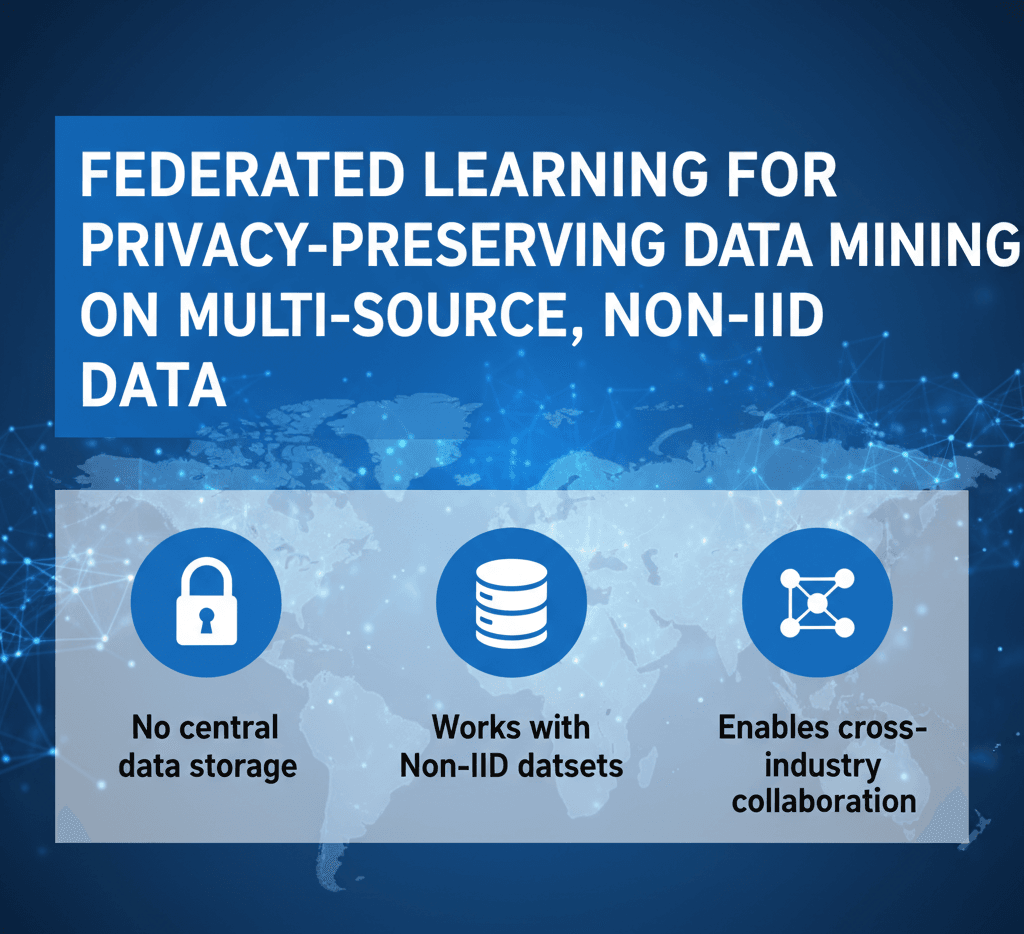Federated Learning
Federated Learning is revolutionizing data mining by enabling AI model training across multiple sources without sharing raw data. This decentralized approach preserves privacy, tackles challenges of non-IID datasets, and fosters cross-industry collaboration in healthcare, finance, and manufacturing. By making privacy intrinsic, FL unlocks innovation while meeting strict compliance standards.

Federated Learning: The Future of Privacy‑Preserving Data Mining on Multi‑Source, Non‑IID Data
In an age where data powers innovation, privacy is no longer an optional feature — it’s a competitive necessity. Federated Learning (FL) is emerging as one of the most transformative methods in data mining, enabling organizations to collaborate on AI model training without ever sharing raw data. For industries that handle sensitive or regulated information, this is a game‑changer.
What Is Federated Learning?
Federated Learning is a decentralized machine learning technique where model training happens across multiple devices or servers holding local datasets. Instead of sending data to a central server, only the model updates are shared and aggregated. This approach preserves privacy while still leveraging the collective intelligence of distributed data.
The Challenge of Non‑IID Data
In real‑world settings, data isn’t evenly distributed. A hospital in one city may have a patient demographic that looks nothing like another hospital halfway across the globe. This non‑independent and identically distributed (non‑IID) data creates training instability and biases in federated systems. Overcoming this statistical heterogeneity is an active area of research — and a make‑or‑break factor for successful deployment.
Why Multi‑Source Collaboration Matters
- Richer insights: Pooling patterns from diverse domains improves prediction accuracy.
- Compliance‑friendly: Meets regulatory demands like GDPR and HIPAA without risky data transfers.
- Broader innovation: Industries that once couldn’t share data can now collaborate on complex AI challenges.
Cutting‑Edge Research Directions
- Adaptive FL algorithms to combat bias in non‑IID environments.
- Cross‑silo FL for large institutions with varying privacy constraints.
- Blockchain‑enhanced FL for secure, auditable collaboration.
- Personalized FL models tailored for each data source while benefiting from global learning.
Applications That Will Define the Next Decade
- Healthcare: Collaborative cancer detection models without breaching patient confidentiality.
- Finance: Fraud detection using transaction patterns across global banks.
- Manufacturing: Real‑time predictive maintenance across distributed factories.
Conclusion
Federated Learning isn’t just a new algorithm — it’s a paradigm shift in how we think about data collaboration. By making privacy intrinsic to the process, it clears the path for breakthroughs in industries that were previously data‑isolated. The future of data mining is decentralized, secure, and more collaborative than ever.